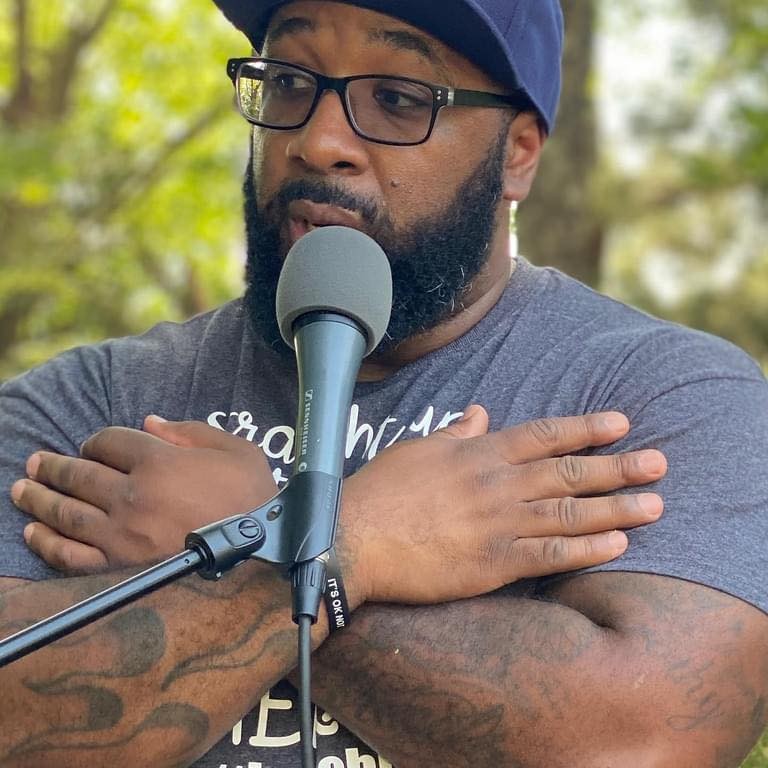We were lucky to catch up with Blaise Harris recently and have shared our conversation below.
Blaise, thanks for joining us, excited to have you contributing your stories and insights. If you had a defining moment that you feel really changed the trajectory of your career, we’d love to hear the story and details.
There have been a few moments in my career as a mental health counselor where I questioned if I was in the right place or if I was qualified to perform in this role. Then there are the moments where there is no question at all. Last year, I released my book, Becoming The Dope Black Therapist, as a memoir of sorts in how I transferred from firefighter to The Dope Black Therapist. It was a way to get my story out so I would not have to carry so much of my trauma with me. I never expected to sell more than a couple of copies and those would be from family and friends.
While speaking at a Fire and Life Safety Educator conference recently, I had the honor and privilege of providing a workshop to several firefighters across the state. When I was finished, someone came up to me and told me he read my book. He said, “your book got me through some really tough times and I wanted to say thank you.” I still get goosebumps when I think about it. The next day as I’m preparing to leave, I see a gentleman waiting to speak to me. He shakes my hand and asks if I remember him. I respond, “vaguely.” He pulls me in closer and whispers, “you kept me from hurting myself a few years ago when you told your story.” I gave him a big hug and told him that I was glad he was still here. He informed me he is in therapy and taking everything a day at a time.
These are two people who I have not seen as clients who told me that by just telling my story, I made an impact. That was my defining moment and what let me know that I am in the right place.
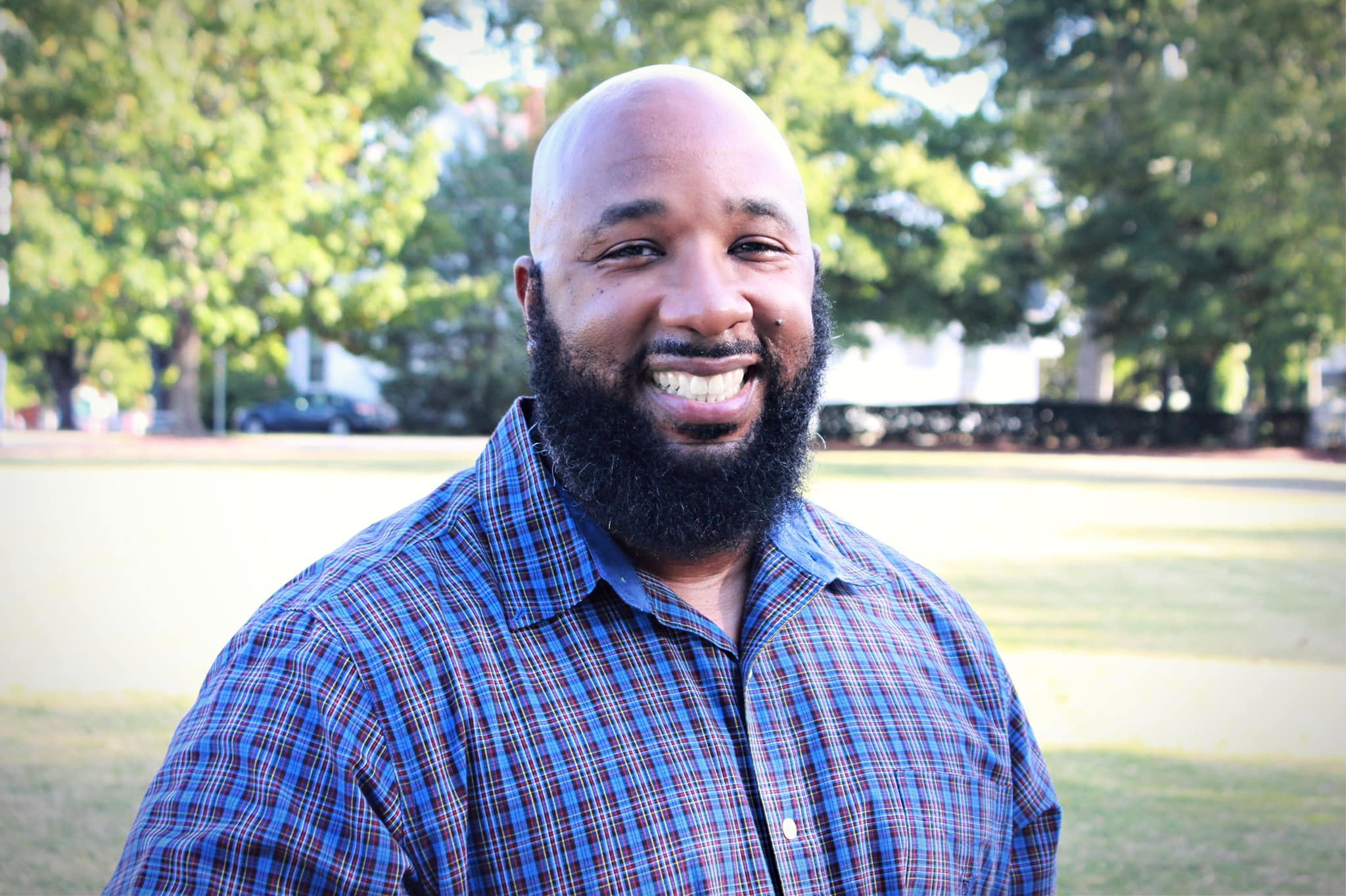
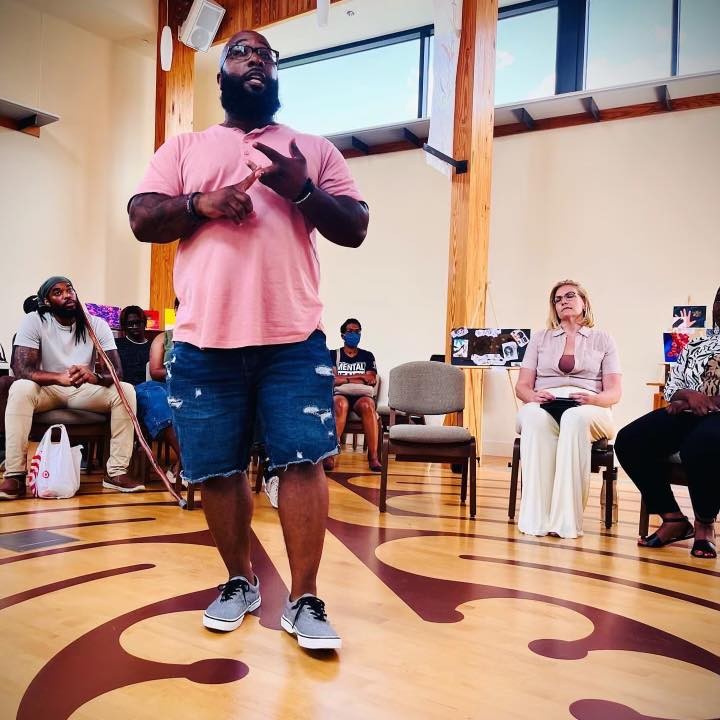

Blaise, love having you share your insights with us. Before we ask you more questions, maybe you can take a moment to introduce yourself to our readers who might have missed our earlier conversations?
My name is Blaise Harris and I go by The Dope Black Therapist. Prior to this role, I served as a firefighter for 14 years serving my community the best way that I knew how. It was an amazing job and I’m grateful for the lessons I’ve learned and the people I’ve met. I was going through a divorce while serving and it ultimately lead to my breakdown. I was battling major depressive disorder, anxiety, suicidal ideations, and had two unsuccessful attempts (thank goodness). With the help of my own therapist and psychiatrist, I began my journey to recovery.
Initially, I became a mental health counselor to help first responders cope with their mental health. My thought was, if I can go through this and I’m always happy and smiling, how many other first responders go through the same thing and never tell anyone? So, I went to grad school to become a therapist for “us” because I knew first responders were not going to talk to just anyone. We want to talk to people who understand our life, work, and stressors without having to explain every detail. While in grad school, I learned Black men have the same thoughts, stigmas, and barriers with mental health. My niche is addressing trauma in Black men and first responders.
The way I do therapy is not what people typically think or see on television. I show up, unapologetically, as myself, meaning I’m wearing what is comfortable, usually a t-shirt with my brand on it, a hat, jeans/shorts/joggers, and a pair of fresh kicks. My clients and I curse in sessions if they want, we laugh, play music, utilize art, and even utilize boxing and dance as a means of stress relief. Therapy is not just constant talking with me. I also utilize EMDR or Eye Movement Desensitization and Reprocessing to address trauma. The way I describe EMDR is “making bad shit less bad.” All of the negative thoughts we experience in our lives that we keep to ourselves are not processed because trauma keeps those thoughts and memories locked away. Our brain goes into fight or flight mode. EMDR allows those thoughts and memories to be processed like we do everything else.
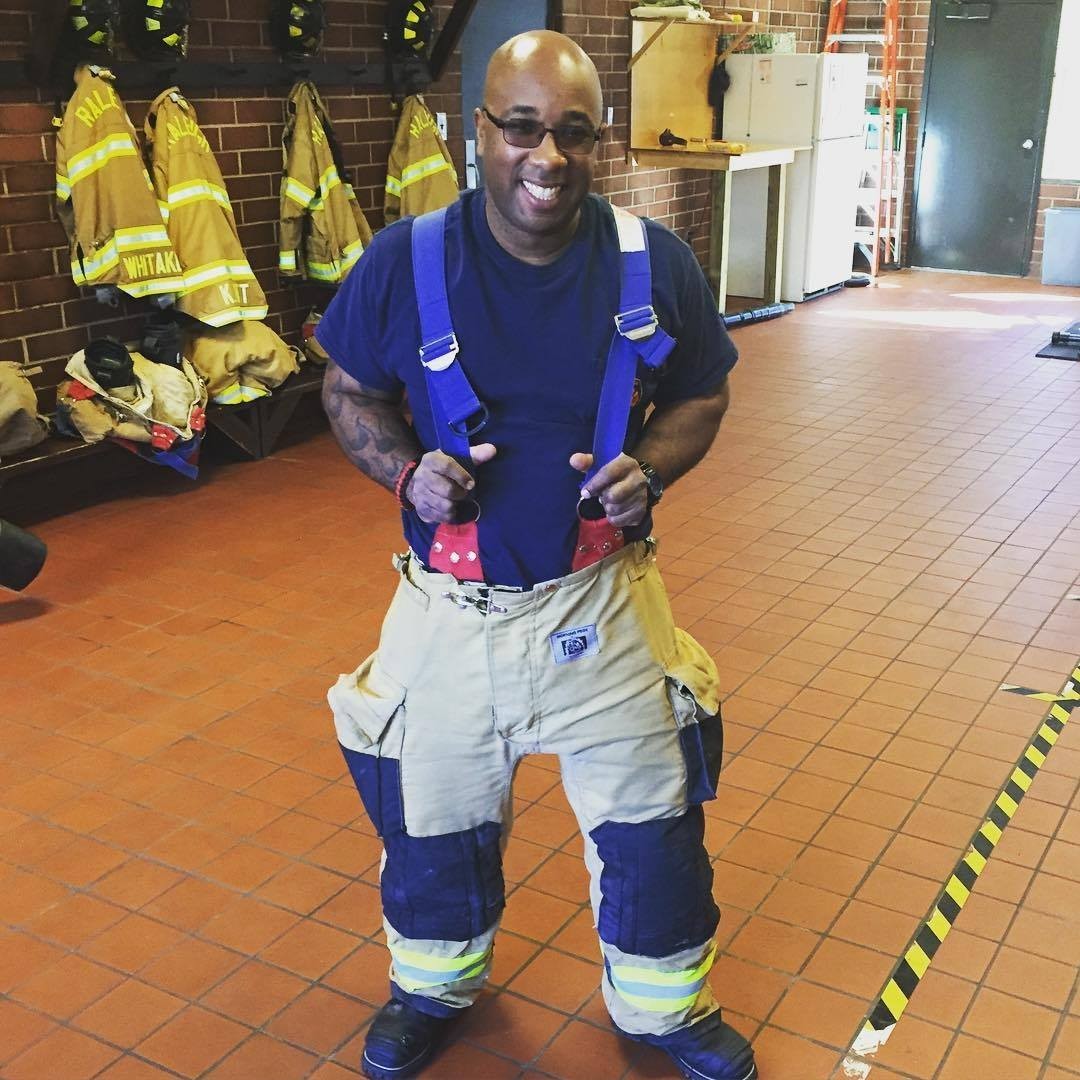
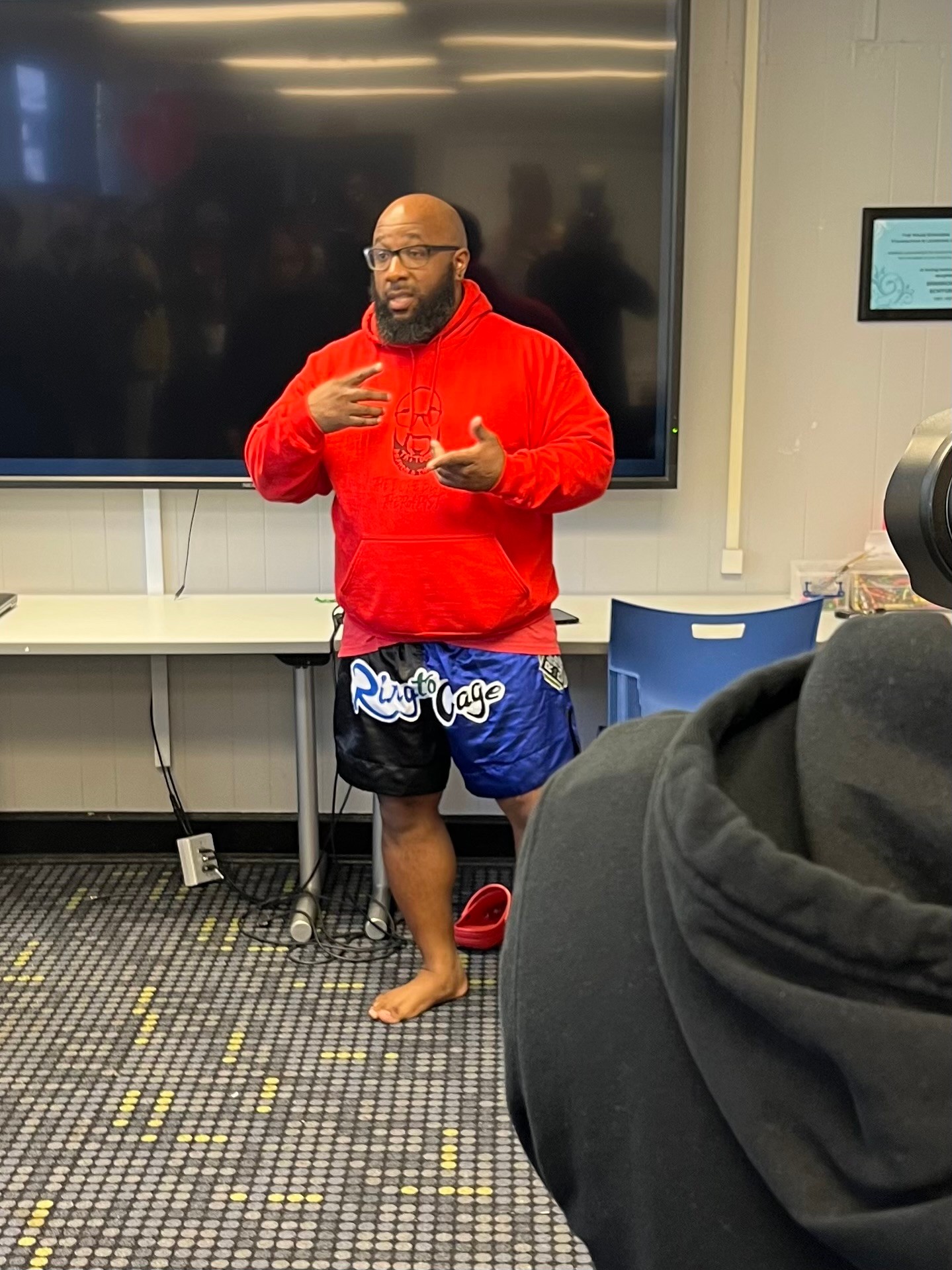
We often hear about learning lessons – but just as important is unlearning lessons. Have you ever had to unlearn a lesson?
The biggest lesson I had to learn is their stuff is their stuff, not mine. As an empath and a self-proclaimed fixer, I thought the best way that I could help people is by making their problems, my problems too…oh how I was so wrong. For years, I lived my life like that and wouldn’t you know it, people took advantage of me. It was only when I began my own therapeutic journey when I learned what boundaries are and how to not only establish them, but also how to implement and maintain them.
With my years as a firefighter, there are still calls that I think about so many years later. We were taught not to discuss it. We just had to keep them to ourselves. Growing up I was told to “man up” instead of dealing my emotions and feelings. It felt like no one wanted to help me, so I did all I could to help others, which meant taking on their problems so they wouldn’t feel like I did. As a therapist, I know I can only do my best and meet my clients where they are. I can provide all of the tools necessary, yet I cannot make my clients use them. As difficult as it is to accept sometimes, all I can do is my best and hope they do what is best for them.
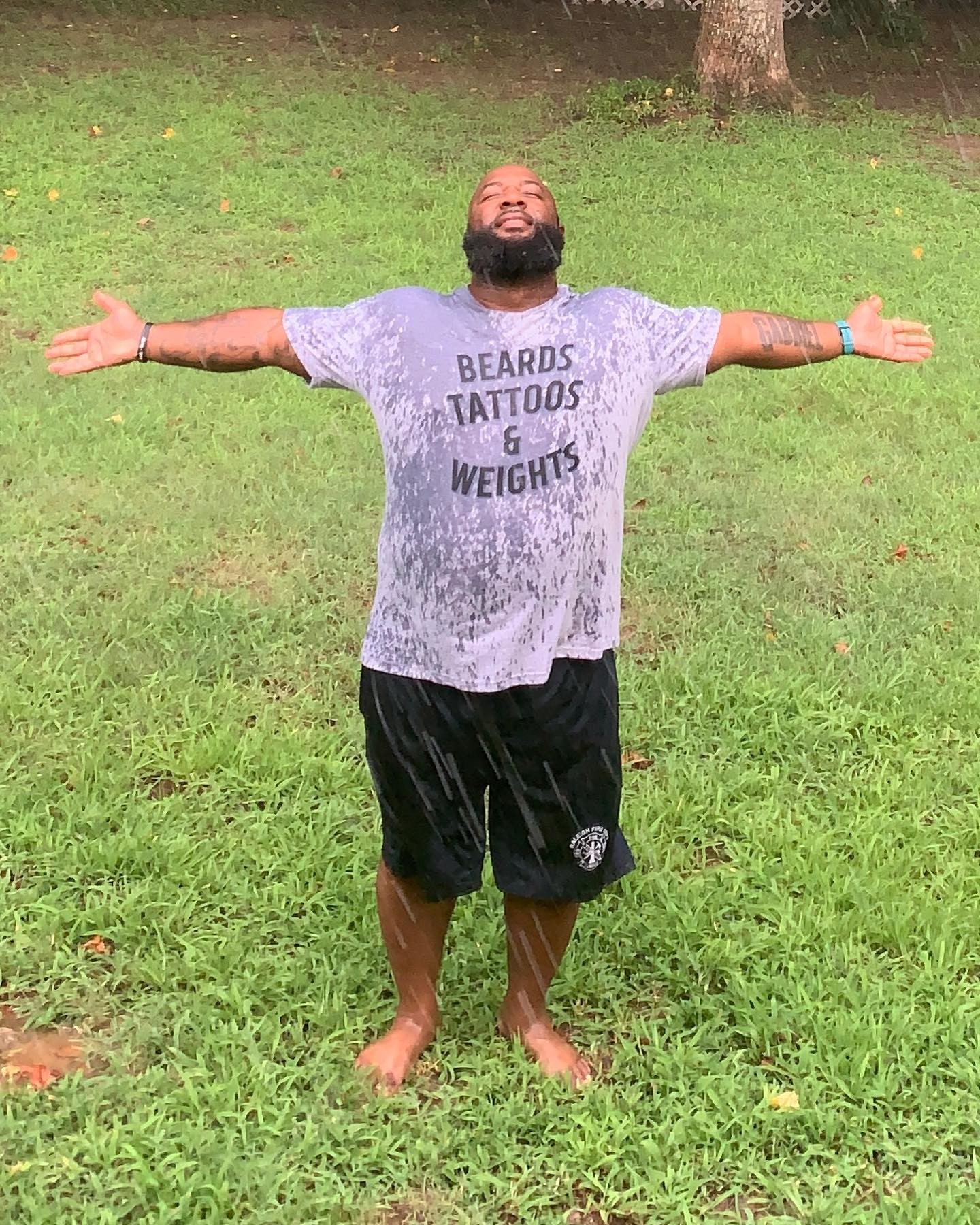
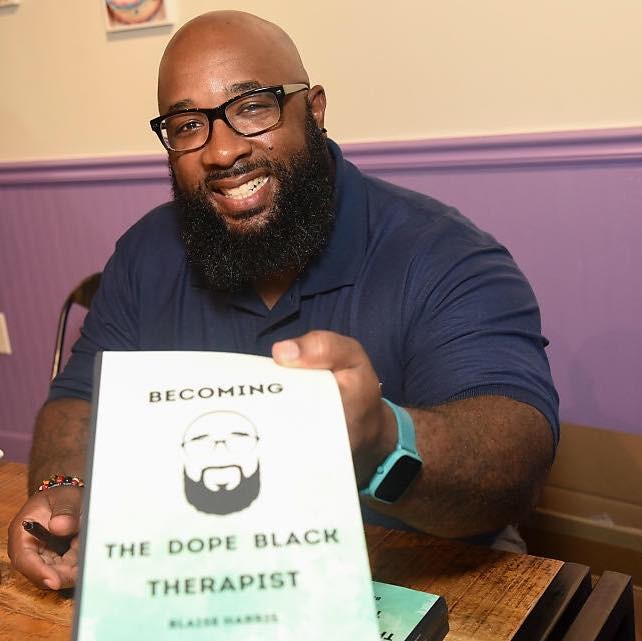
What’s been the most effective strategy for growing your clientele?
Believe it or not, the most effective strategy for growing my clientele has been word of mouth. Whether it is my clients referring me to their colleagues, members from my men’s support group sharing the space, or my colleagues referring people to my practice, it all comes from word of mouth. Granted, I do my fair share of marketing and social media posts, but there’s no substitute for experiences.
Contact Info:
- Website: www.thedopeblacktherapist.com
- Instagram: the_dopeblacktherapist
- Linkedin: https://www.linkedin.com/in/blaise-harris-78873211a/
- Youtube: https://www.youtube.com/channel/UCCqxuJVL9zXedR9Apcj_bIw


